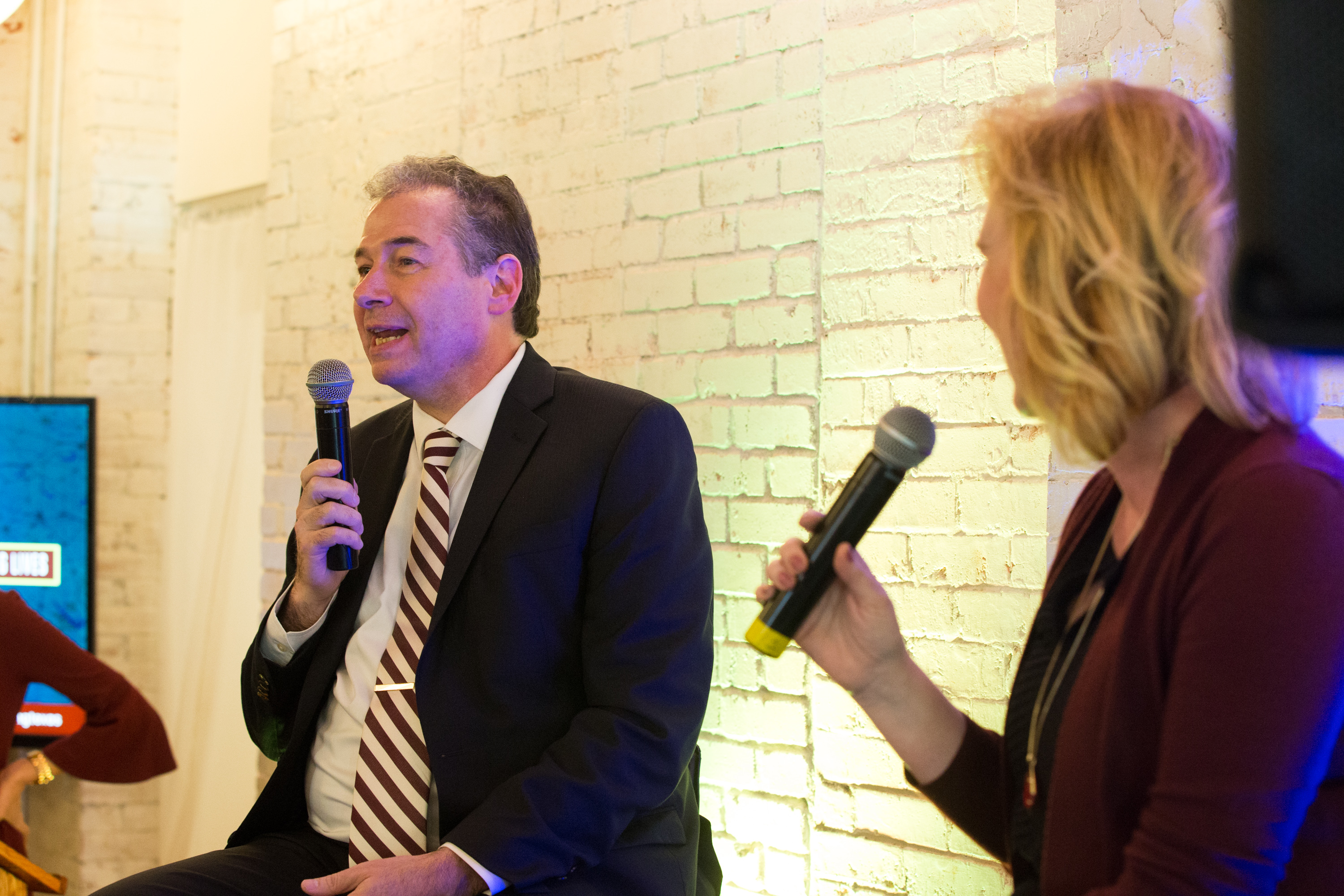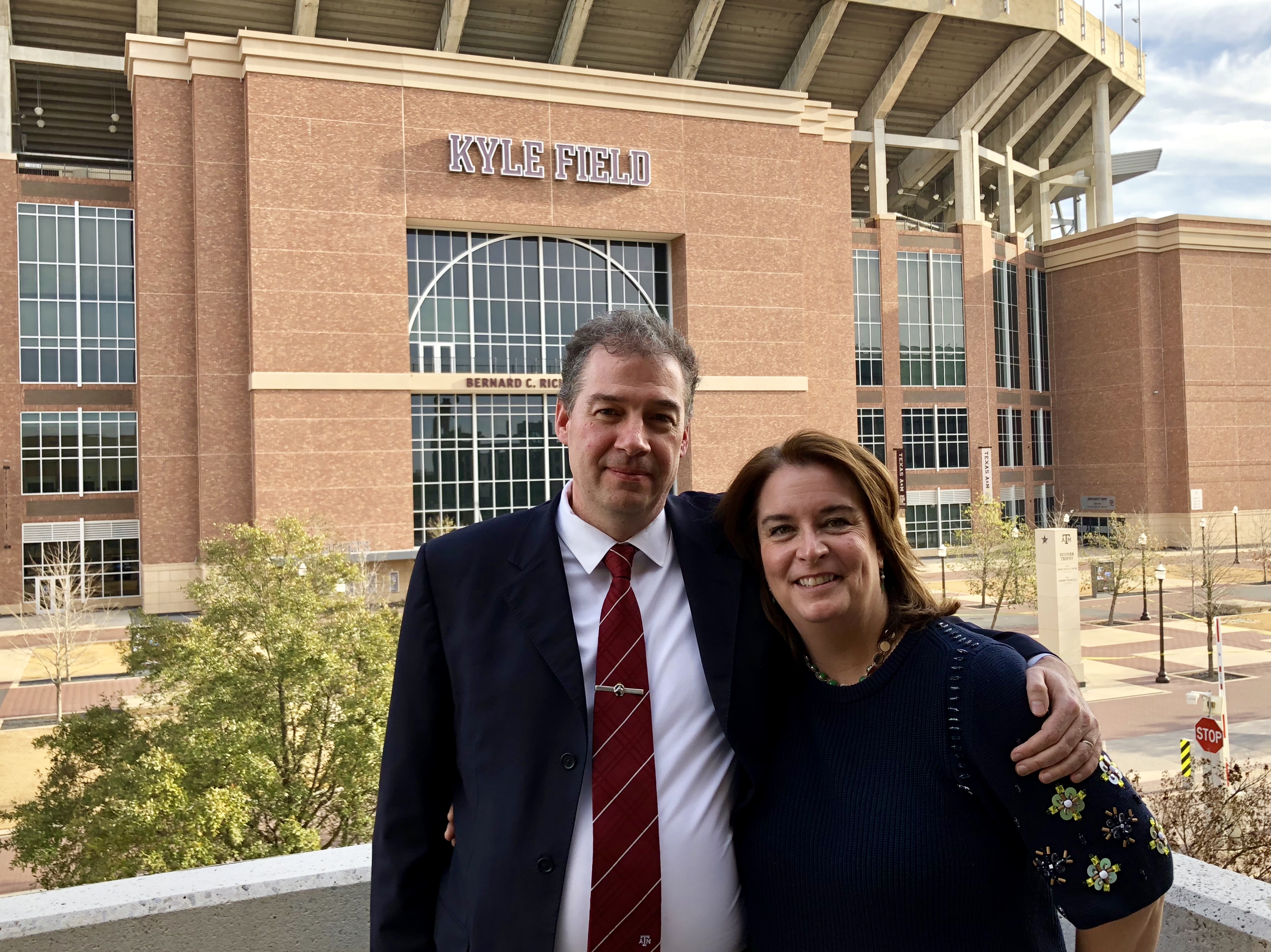Howdy Ags!
I'm Patrick Stover, the Vice Chancellor and Dean for Agriculture and Life Sciences at Texas A&M AgriLife. We have a new initiative at AgriLife and we'd like your help: we want Texas to become a model for how to lower health care costs through improving the quality of the food system, an initiative we call "responsive agriculture".
Long-term, the goal is to enrich quality of life by improving the health of Texans, our environments and the profitability of agriculture so young people will be attracted to careers in farming and ranching. It's an ambitious goal, but if anyone is capable of reaching it, it's Texans and Aggies.

We are now planning a series of "roadshow" events to learn about stakeholders' regional needs and share ideas and expertise. Each event will have a different theme. For example, McAllen's event will focus on growing citrus while Amarillo's event will highlight beef cattle production.
Please attend an event close to you. I would like to meet you!
Visit https://www.agrilife.org/AdvancingTexas to learn more and RSVP.
Advancing Texas Roadshows - Dates, Region, Cities
August 1923, 2019 Gulf Coast - Corpus Christi, McAllen
October 711, 2019 North Texas - Dallas/Fort Worth
December 26, 2019 Panhandle Plains - Amarillo, Lubbock
TBD, 2020 Hill Country - Austin
TBD, 2020 South Texas - San Antonio
TBD, 2020 Gulf Coast - Houston
TBD, 2020 Brazos Valley - Bryan/College Station
About me
In 2018, my wife and I moved from upstate New York in the Fingerlakes Region, where I was the director of Cornell University's Division of Nutritional Sciences, to College Station.
I couldn't be more excited to be here. First, my wife and I are huge fans of Aggie football. Second, Texas A&M is the perfect place to work on advancing agriculture. And I've spent my life learning how agriculture and nutrition can impact quality of life.

I grew up in rural Pennsylvania. My siblings and I helped with our family's "victory garden," where we harvested loads of fresh produce to last through the year. That's what gave me an abiding interest in nutrition and agriculture. I went on to become a first-generation college graduate, and I earned a bachelor's degree in chemistry from Saint Joseph's University and then a doctorate in biochemistry and molecular biophysics from the Medical College of Virginia.
A diet-related health breakthrough
For 23 years, I did research to understand why some women are susceptible to having children with the birth defect spina bifida, and why taking extra folic acid reduces that risk by up to 70 percent. I collaborated with state, federal, and international policymakers to advance policies to fortify foods with folic acid. That policy virtually eliminated spina bifida.
A diet-related health crisis
At Cornell University, my lab focused on the consequences of poor diets, particularly chronic disease. Diet-related chronic diseases cost the U.S. economy about $1 trillion dollars per year. That's why I got involved in relevant National Academy of Sciences committees along with many other experts in these fields. We all saw a big disconnect between agriculture and consumers in terms of attitudes, preferences and health needs.
Advancing Texas
As it turns out, Texas A&M is perfectly positioned to address the diet-related problems of our time. Texas is heavily invested in agriculture, which brings about $100 billion annually to the economy. Texas is also experiencing a diet-related public health crisis. Our state has ample motivation and power to address this problem. Texas could truly be a national and global model for how to align agricultural producers and consumers to benefit all.
If you want to help improve lives, environments and our Texas economy, I encourage you to get involved with the Advancing Texas initiative. Come to a roadshow event and share your concerns. We can also direct your support to numerous statewide efforts in education, research, extension and service.
Learn more at https://www.agrilife.org/AdvancingTexas
I'm Patrick Stover, the Vice Chancellor and Dean for Agriculture and Life Sciences at Texas A&M AgriLife. We have a new initiative at AgriLife and we'd like your help: we want Texas to become a model for how to lower health care costs through improving the quality of the food system, an initiative we call "responsive agriculture".
Long-term, the goal is to enrich quality of life by improving the health of Texans, our environments and the profitability of agriculture so young people will be attracted to careers in farming and ranching. It's an ambitious goal, but if anyone is capable of reaching it, it's Texans and Aggies.

We are now planning a series of "roadshow" events to learn about stakeholders' regional needs and share ideas and expertise. Each event will have a different theme. For example, McAllen's event will focus on growing citrus while Amarillo's event will highlight beef cattle production.
Please attend an event close to you. I would like to meet you!
Visit https://www.agrilife.org/AdvancingTexas to learn more and RSVP.
Advancing Texas Roadshows - Dates, Region, Cities
August 1923, 2019 Gulf Coast - Corpus Christi, McAllen
October 711, 2019 North Texas - Dallas/Fort Worth
December 26, 2019 Panhandle Plains - Amarillo, Lubbock
TBD, 2020 Hill Country - Austin
TBD, 2020 South Texas - San Antonio
TBD, 2020 Gulf Coast - Houston
TBD, 2020 Brazos Valley - Bryan/College Station
About me
In 2018, my wife and I moved from upstate New York in the Fingerlakes Region, where I was the director of Cornell University's Division of Nutritional Sciences, to College Station.
I couldn't be more excited to be here. First, my wife and I are huge fans of Aggie football. Second, Texas A&M is the perfect place to work on advancing agriculture. And I've spent my life learning how agriculture and nutrition can impact quality of life.

I grew up in rural Pennsylvania. My siblings and I helped with our family's "victory garden," where we harvested loads of fresh produce to last through the year. That's what gave me an abiding interest in nutrition and agriculture. I went on to become a first-generation college graduate, and I earned a bachelor's degree in chemistry from Saint Joseph's University and then a doctorate in biochemistry and molecular biophysics from the Medical College of Virginia.
A diet-related health breakthrough
For 23 years, I did research to understand why some women are susceptible to having children with the birth defect spina bifida, and why taking extra folic acid reduces that risk by up to 70 percent. I collaborated with state, federal, and international policymakers to advance policies to fortify foods with folic acid. That policy virtually eliminated spina bifida.
A diet-related health crisis
At Cornell University, my lab focused on the consequences of poor diets, particularly chronic disease. Diet-related chronic diseases cost the U.S. economy about $1 trillion dollars per year. That's why I got involved in relevant National Academy of Sciences committees along with many other experts in these fields. We all saw a big disconnect between agriculture and consumers in terms of attitudes, preferences and health needs.
Advancing Texas
As it turns out, Texas A&M is perfectly positioned to address the diet-related problems of our time. Texas is heavily invested in agriculture, which brings about $100 billion annually to the economy. Texas is also experiencing a diet-related public health crisis. Our state has ample motivation and power to address this problem. Texas could truly be a national and global model for how to align agricultural producers and consumers to benefit all.
If you want to help improve lives, environments and our Texas economy, I encourage you to get involved with the Advancing Texas initiative. Come to a roadshow event and share your concerns. We can also direct your support to numerous statewide efforts in education, research, extension and service.
Learn more at https://www.agrilife.org/AdvancingTexas
